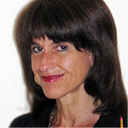In Crisis, Listen to Women
The new Coronavirus (COVID-19) will affect millions around the world, but while older men seem more predisposed to contract it, women will bear the brunt of the recovery. Women who do most of the caretaking and the community-based public health work around the world. Women whose agenda has already been sidelined as male politicians compete to dodge responsibility while ignoring the voices of those who know the truth from their experience on the ground.
Thousands of women from grassroots organizations worldwide were poised to descend on the United Nations headquarters in March to make their voices heard at the Commission on the Status of Women meetings, which, like so many events, were thwarted by the Coronavirus.
This year marks the 25th anniversary of the Beijing Declaration and Platform for Action, a powerful agenda adopted by the United Nations at the Fourth World Conference on Women. The Platform affirmed member states’ commitment to concrete strategies for advancing women’s health, safety, education, and opportunity, and the women in the wings had hoped to remind these duty bearers of that commitment and to find ways of holding them accountable.
Indeed, governments have dedicated considerable resources toward achieving this goal over the last 25 years. Despite these efforts, though, the safety, wellbeing, and economic progress of women and girls have barely advanced, and women’s leadership opportunities lag far behind those of their male counterparts. As practitioners, we know that if we are serious about containing the spread of epidemics, reducing violence against women and girls or improving women’s access to health care, education, economic opportunity, we need to employ a new and single strategy: listening to women.
Local women and girls know best what they need in order to thrive. Their knowledge and experience should serve as a guide to policymakers, as the international community rededicates itself to realizing the Platform for Action at the Beijing+25 conference this year.
The original Platform agenda, entitled, “Action for Equality, Development and Peace,” incorporated key priorities of the 31,000 activists from all over the world who converged on Beijing in 1995. Then-First Lady Hillary Rodham Clinton summed up this historic convergence, memorably affirming that, “human rights are women’s rights and women’s rights are human rights once and for all.”
But the former First Lady didn’t stop there. “As long as discrimination and inequities remain so commonplace everywhere in the world,” she continued, “as long as girls and women are valued less, fed less, fed last, overworked, underpaid, not schooled, subjected to violence in and outside their homes — the potential of the human family to create a peaceful, prosperous world will not be realized.”
A generation later, we remain tragically far off-track. Women’s voices, and those of the bold frontline organizations that serve them, continue to be drowned out by those with power and influence who think they know how to improve women’s lives.
It’s beyond time for a course correction. We lost our way when we stopped listening to the women on the ground who in 1995 braved extraordinary misogyny, discrimination, and sacrifice to come to Beijing to share their stories.
At WomenStrong International, we support such women through the women-led organizations that serve them in urban communities worldwide, as they develop, test, refine, and share what works to improve women’s lives. Failed repeatedly by local and national politicians, these women leaders have been forced to rely on their wisdom, creativity, and grit to address their own challenges. Whether persuading fathers to delay child marriage or training teachers on gender norms, they are eager to learn from one another and to adapt each other’s solutions within their own contexts.
When women come together to share what they know, everyone learns, and entire communities benefit.
Policymakers have lost precious time and resources by not building on that local knowledge and on the experience of these women and organizations, in designing, implementing, and evaluating programs that will finally move the needle for women and girls.
As the delayed and dishonest government responses to the Coronavirus health crisis make clear, we’re out of time. The world is convulsed, the planet in crisis, and women are sorely needed to lead the way in representing and healing their communities. If we are ever to achieve the “Equality, Development and Peace” so boldly heralded in the Beijing Platform, world leaders and policymakers need to flip the script. From the gilded halls hosting world gatherings to the smallest barrio, leaders and policymakers must center and elevate women’s voices, wisdom, empathy, and experience — not just to contribute to the global agenda, but to make it real.
